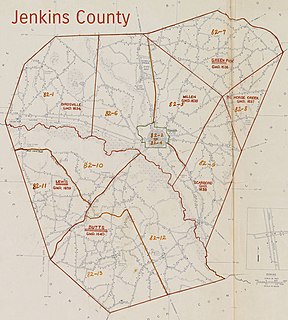
The John Jay College of Criminal Justice is a public college focused on criminal justice and located in New York City. It is a senior college of the City University of New York (CUNY). John Jay was founded as the only liberal arts college with a criminal justice and forensic focus in the United States. The college is known for its criminal justice, forensic science, forensic psychology, and public affairs programs.

The Dyer Anti-Lynching Bill was first introduced in 1918 by Representative Leonidas C. Dyer, a Republican from St. Louis, Missouri, in the United States House of Representatives as H.R. 11279. It was intended to establish lynching as a federal crime. The Dyer Anti-Lynching Bill was re-introduced in subsequent sessions of Congress and passed by the U.S. House of Representatives on January 26, 1922, but its passage was halted in the Senate by a filibuster by Southern Democrats, who formed a powerful block that exceeded their percentage of the population by having disenfranchised blacks.

Lynching is the practice of murder by a group of people by extrajudicial action. Lynchings in the United States rose in number after the American Civil War in the late 19th century, following the emancipation of slaves; they declined in the 1920s. Most lynchings were of African-American men in the Southern United States, but women and non-blacks were also lynched, not always in the South. White lynchings of blacks also occurred in the midwestern United States and the border states, especially during the 20th-century Great Migration of blacks out of the Southern United States. The purpose was to enforce white supremacy and intimidate blacks through racial terrorism. According to Ida B. Wells and Tuskegee University, most lynching victims were accused of murder or attempted murder. Rape or attempted rape was the second most common accusation; such accusations were often pretexts for lynching blacks who violated Jim Crow etiquette or engaged in economic competition with whites. Sociologist Arthur F. Raper investigated one hundred lynchings during the 1930s and estimated that approximately one-third of the victims were falsely accused. On a per capita basis, lynchings were also common in California and the Old West, especially of Latinos, although they represented less than 10% of the national total. Native Americans and Asian Americans were also lynched. Other ethnicities, including Finnish-Americans, German-Americans, and Italian-Americans were also lynched occasionally.

Quinten Peter Lynch is a former Australian rules footballer who played with the Collingwood Football Club and the West Coast Eagles in the Australian Football League (AFL). Originally from Grass Patch, a rural farming community near Esperance, Western Australia, he played for the West Perth Football Club in the West Australian Football League (WAFL) before being recruited to West Coast with the 19th pick overall in the 2002 Rookie Draft.

Scott Lynch is an American fantasy author who wrote the Gentleman Bastard series of novels. His first novel, The Lies of Locke Lamora, was purchased by Orion Books in August 2004 and published in June 2006 under the Gollancz imprint in the United Kingdom and under the Bantam imprint in the United States. The next two novels in the series, Red Seas Under Red Skies and The Republic of Thieves, were published in 2007 and 2013, respectively.

Jay Malcolm Kennedy was an American editor and writer. The author of The Official Underground and Newave Comix Price Guide, he was a long-time editor at King Features Syndicate, eventually rising to the position of editor-in-chief.
Joe Coe, also known as George Smith, was an African-American laborer who was lynched on October 10, 1891, in Omaha, Nebraska. Overwhelmed by a mob of one thousand at the Douglas County Courthouse, the twelve city police officers stood by without intervening. Afterward, the mayor called the lynching "the most deplorable thing that has ever happened in the history of the country."
All the Way Home is a play written by American playwright Tad Mosel, adapted from the 1957 James Agee novel, A Death in the Family. Both authors received the Pulitzer Prize for their separate works.

Bijou Funnies was an American underground comix magazine which published eight issues between 1968 and 1973. Edited by Chicago-based cartoonist Jay Lynch, Bijou Funnies featured strong work by the core group of Lynch, Skip Williamson, Robert Crumb, and Jay Kinney, as well as Art Spiegelman, Gilbert Shelton, Justin Green, and Kim Deitch. Bijou Funnies was heavily influenced by Mad magazine, and, along with Zap Comix, is considered one of the titles to launch the underground comix movement.

Ross Shor Lynch is an American singer, songwriter, musician and actor. He was the lead vocalist of the pop rock band R5 and one half of the band The Driver Era, with his brother, Rocky Lynch. As an actor, he is known for his debut role as Austin Moon on the Disney Channel original series Austin & Ally, and for his role as Brady in the Teen Beach Movie series.

Jim McMillan was lynched in Bibb County, Alabama on June 18, 1919.

Berry Washington was a black man who was lynched in Milan, Georgia in 1919.
John Hartfield was a black man who was lynched in Ellisville, Mississippi in 1919 for allegedly having a white girlfriend. The murder was announced a day in advance in major newspapers, a crowd of as many as 10,000 watched while Hartfield was hanged, shot, and burned. Pieces of his corpse were chopped off and sold as souvenirs.

The Jenkins County riot of 1919 took place on Sunday, April 13, 1919, when a series of misunderstandings and out-of-control events spiralled into two white police officers being killed. In retaliation the local white community formed mobs and ravaged the black community, burning black community buildings and killing at least four people.
The National Conference on Lynching took place in Carnegie Hall, New York City, May 5–6, 1919. The goal of the Conference was to pressure Congress to pass the Dyer Anti-Lynching Bill. It was a project of the new NAACP, which in April released a report, Thirty Years of Lynching in the United States, 1889-1918.

African Americans Veterans faced heavy persecution when they returned home from World War I. The article focuses on African American veterans lynched after WWI.













